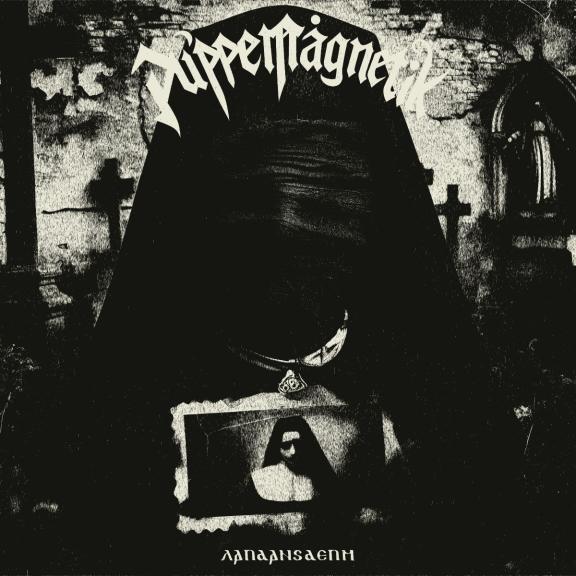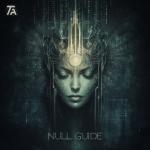The story of Aina Virtanen, the artist behind Puppe Magnetik, sounds a bit like a superhero origin story: after studying singing, piano and violin at the Hanns Eisler Conservatory in Berlin, and while dedicated to rediscovering the operetta music of the 1920s and 30s, the Finn was forced to take a two-year break. Personal struggle and hospitalisation led her to seek isolation and inspiration in the remote landscapes of Finland... And there it was: after the shattering, after the difficulties, Puppe Magnetik was born, forged by pain, trauma, but also the spectres of the early twentieth century whose music and cinema so enthralled Virtnanen. The result is an atypical blend of operetta, dark ambient, industrial, neofolk... and after a first EP retracing the musician's first experiments, here is her first album, Laudans Deum, ‘praising God’.
This Laudans Deum has something of the feel of a dark, eccentric show, a thing full of out-of-tune, wobbly instruments where one act follows another in the gloom of a seedy cabaret set in the darkest corners of a ruined city. Very quickly, the album appears as a pile of influences, desires, sounds and ideas that come to life in the form of tracks where poetry and dissonance are superimposed. The opening moments give a good idea of what's in store, like the introductory poem, Act. XXII, in which classicism descends into a form of contained madness, a despair just waiting to explode, before drawing us into the atmospheric darkness of The Invisible Garden and its ghostly samples. You can hear the exacting standards and musical rigour, but also the desire to shatter codes with an industrial and experimental approach that, despite its complexity and apparent coldness, is a joy to behold.
While Puppe Magnetik was born out of suffering and the tracks are often dripping with melancholy, it's impossible not to find this taste for the gritty, the strange and the offbeat particularly satisfying, almost playful. In the rare moments when Puppe Magnetik lets go and takes us on board with Who Will Sing the Sorrow? and its heady vocals or The Labyrinth (the artist confesses having fun trying out her version of a ‘catchy’ track), we find ourselves swept away by a gentle madness, a raging life impulse, a monstrous Tod Browning-style parade of odds and ends. But for the most part, Laudans Deum is less acrobatic and amusing.
In her ambient experiments, Puppe Magnetik mixes the scent of old silent films with a mystical quest. It's obscure, mysterious, disturbing even. The classical instruments play an important role, giving the music its breadth and variety: the contrast between The Pregnant Nun and the more industrial Sospendium, Rosarium Et Crucifixum with its inhabited cries, the contemplation of Moritat and the exotic touches of Laments From the Desert (Puppe Magnetik cites Dead Can Dance as one of her influences, and it's not hard to see why), the oppressive noise thickness of Inner Light / Outer Protest and the apparent, more minimalist serenity of Timeless Serenade are all examples of the great leap Puppe Magnetik makes from one number to the next.
Like its artwork, but above all its creator, the music that staggers and dances in Laudans Deum is a collage of scattered elements brought together to take on life, a creature with elusive contours, dark, sometimes frightening but nonetheless touching and capable of lightness. Puppe Magnetik manages to combine a radical approach that occasionally flirts with extreme noise experimentation with more classic melodies and vocals that allow the listener to find his way. Firmness and creative madness, apocalyptic darkness and cathartic dances: Laudans Deum contains a little of all this and is a fascinating curiosity.





